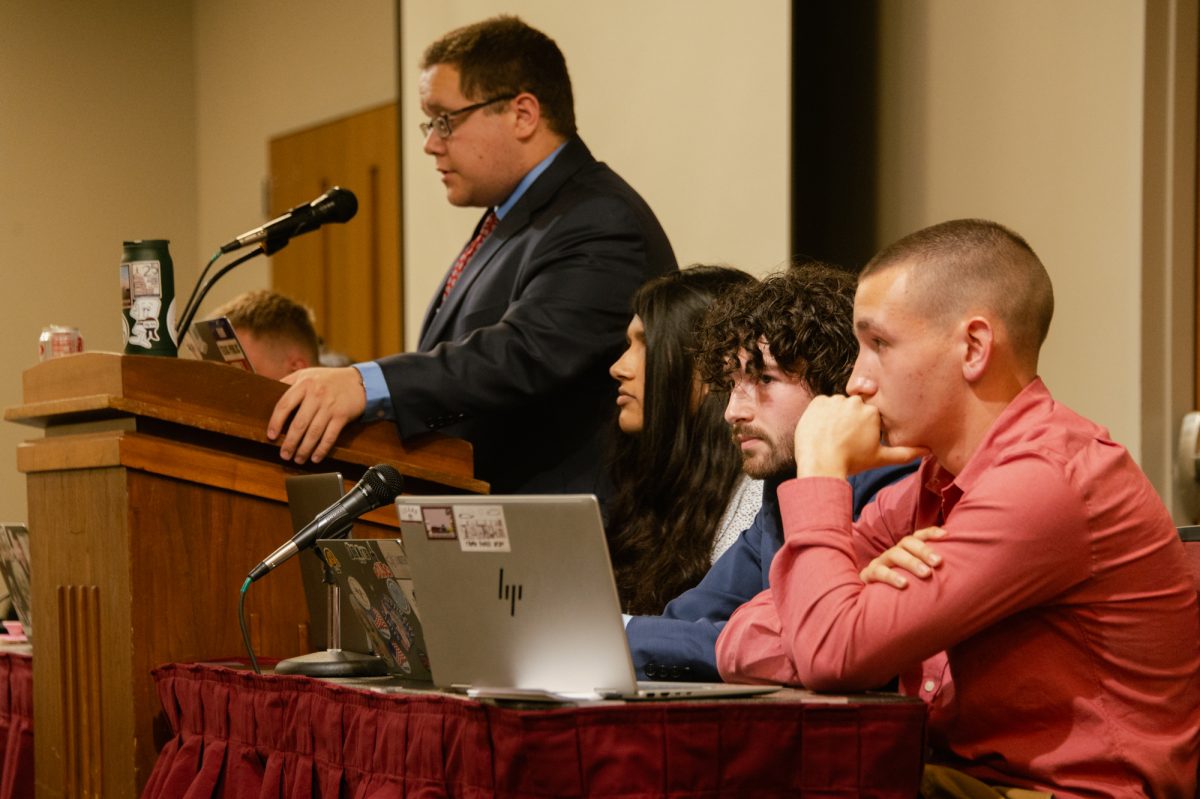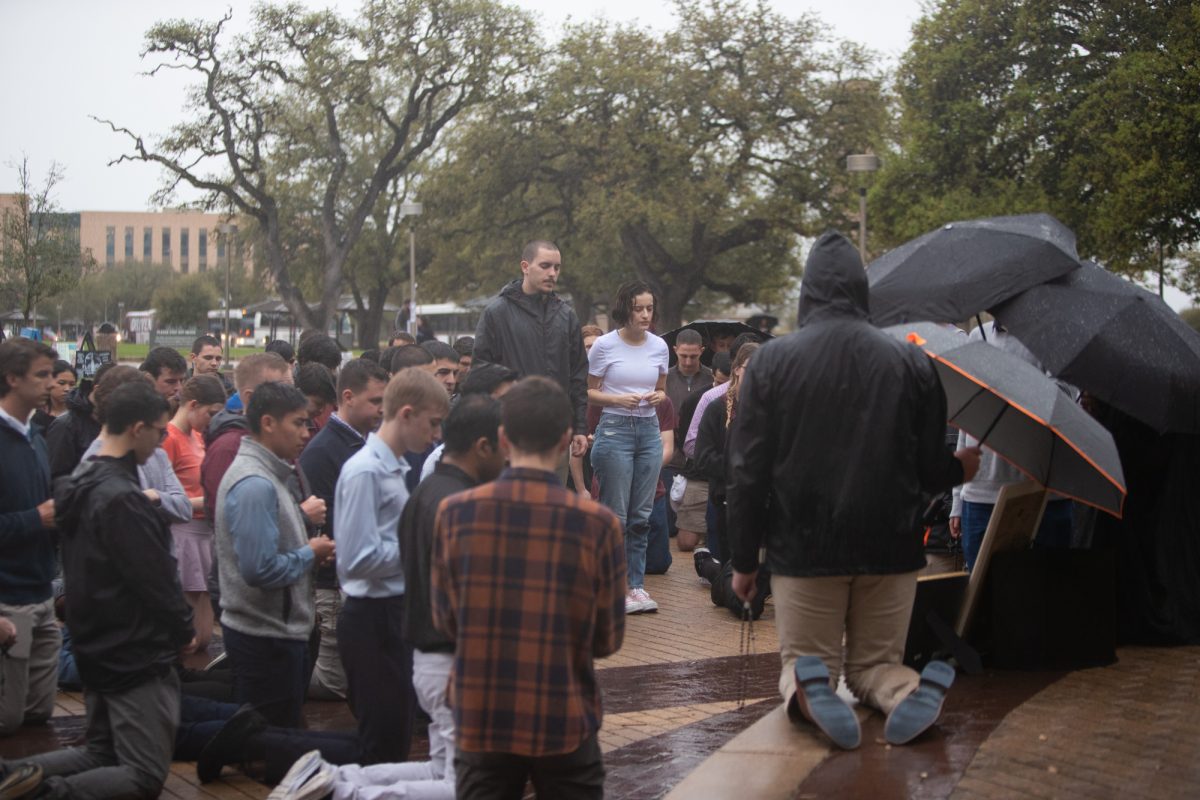A letter from the Department of Education’s acting assistant secretary aimed at curtailing diversity, equity and inclusion initiatives went into effect on Feb. 28. The letter alleges that attempts to hold separate graduation ceremonies — which four Texas A&M student organizations host each semester — are reminiscent of Jim Crow-era segregation.
Independent student organizations are not under the scope of the letter, as legal precedent set in the 1980s determined that universities cannot compromise students’ right to free speech. Gay Student Services v. Texas A&M University ruled in the students’ favor in the Fifth U.S. Circuit Court of Appeals after students alleged their First Amendment rights were restricted after A&M banned organizations that supported gay students. University funds, on the other hand, do fall under the letter’s proposed guidelines.
Materials science and engineering Ph.D. student Sophia Ahmed is the president of the Queer Empowerment Council, or QEC, which hosts a Lavender Graduation ceremony for Aggies who identify as LGBTQ+ and their allies every spring.
“We haven’t been told anything, because it would violate the First Amendment,” Ahmed said.
Across the nation, educators are pushing back against the guidelines implied in the letter, with the American Federation of Teachers suing the Trump administration on Feb. 25. In Texas, state legislation already banned DEI programs, leading to the closure of offices across the state, including A&M’s Pride Center.
“Since Senate Bill 17, QEC has taken the helm of former Pride Center events, including Lavender Graduation,” Ahmed said. “We didn’t want that tradition to die. Sometimes some students may not be comfortable with their identity in front of their family, or it might be a danger.”
According to Ahmed, a major source of funding for QEC was the drag show Draggieland, which has been forced into a legal battle after the Board of Regents banned on-campus drag shows across the A&M System on Feb. 28. A recent ruling by Judge Lee Rosenthal granted a temporary injunction, which allowed for the show to continue as planned on campus.
At the College Station campus, the Department of Multicultural Services last held its Multicultural Graduation ceremony in the spring of 2020. Since SB17 was passed, the graduation ceremony has splintered into three different ceremonies. Other student organizations that hold alternative graduation programs include the Latinx Graduation, hosted by 10 Hispanic-serving student organizations, the Asian Presidents Council’s graduation ceremony and the Black Student Alliance Council’s ceremony.
“Regardless of its impact on us, it pains us to see the tremendous negative impact this has on various university programs and initiatives that were beneficial to the entire student body not only on our campus, but many across the nation,” a statement from Latinx Graduation reads.
Business honors senior and president of the Asian President’s Council Hannah Bang said members of her organization have expressed concerns about the loss of scholarships or academic support as a result of the letter.
“We may not get the support we used to,” Bang said. “It doesn’t really stop us from doing what we want to do and carrying out our missions, and honestly, I think it empowers us even more to stand our ground.”
While university funds may be directed to student organizations that do not have specific interest in DEI, Bang said the impact has already been felt by students in her organization.
“The biggest issue we’ve been seeing and something we can definitely do something about is mental health,” Bang said. “We’ve been trying to focus on how these issues, or really any issue in society, affects us as a group and how that affects us mentally and how we can be there for each other.”
Bang and other student leaders said they have been focusing on supporting students within their organizations with a sense of stability, and the graduation ceremonies will happen as planned.
“Because this is something that is really special to us, we do plan on keeping it as our annual thing,” Bang said. “Obviously, with the situation and legislation that is changing, we’re going to do our best to adhere to policies, and making sure that doesn’t take away from our mission.”
With ongoing litigation against the Trump administration, the legal landscape is liable to change dramatically going into graduation season, according to legal experts and court battles, some of which have overturned the anti-DEI requirements.
“As a Recognized Student Organization, we are self-governing and able to freely establish our mission in spreading the values of inclusivity and diversity throughout Texas A&M University by celebrating the accomplishments of our Aggies in Spanish and English with the planning of the Latinx Graduation Ceremony,” the statement from Latinx Graduation reads. “In other words, the Latinx Graduation Ceremony will still be hosted on May 7th, 2025, from 1-3 pm.”
The Asian President’s Council’s graduation ceremony will take place on April 17., and QEC’s ceremony will take place in April as well. All organizations encouraged students to support graduating seniors and to attend graduation ceremonies they are interested in, regardless of ethnic, racial, sexual or gender identity.
“All student org leaders should know we are protected by the First Amendment,” Ahmed said. “That being said, I don’t think they should be afraid, but it’s always good to be prepared — whether that is or is not relying on school funds.”





















